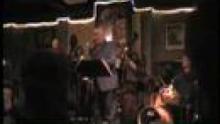The Collective Unconcious and the Un-structured Improv
When I saw Dana's post of his 'Un-structured improv I thought that's cool. We have a little wave of free improv going.
I posted that electronic stuff and now Dana posted this. Then I thought that would be cool if others just played whatever on their instrument and posted the outcome.
Playing free and using your ears to move the harmony is a great way to grow musically!
So the challenge is to post your own 'Un-structured improv'.
- Read more about The Collective Unconcious and the Un-structured Improv
- Log in or register to post comments






